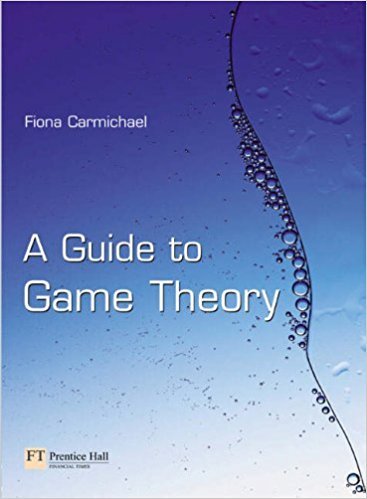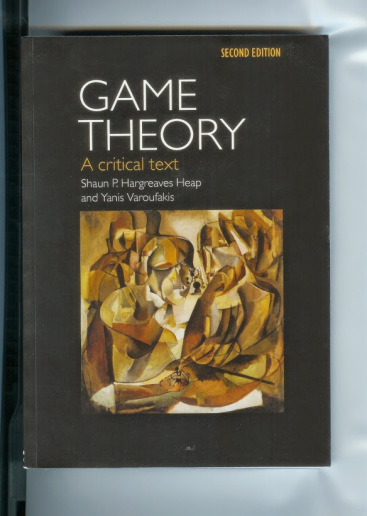On the limits of game theory [embedded content] Back in 1991, when yours truly earned his first PhD with a dissertation on decision making and rationality in social choice theory and game theory, I concluded that “repeatedly it seems as though mathematical tractability and elegance — rather than realism and relevance — have been the most applied guidelines for the behavioural assumptions being made. On a political and social level, it is doubtful if the methodological individualism, ahistoricity and formalism they are advocating are especially valid.” This, of course, was like swearing in church. My mainstream neoclassical colleagues were — to say the least — not exactly überjoyed. For those of you who are not familiar with game theory, but eager to
Topics:
Lars Pålsson Syll considers the following as important: Economics
This could be interesting, too:
Lars Pålsson Syll writes Schuldenbremse bye bye
Lars Pålsson Syll writes What’s wrong with economics — a primer
Lars Pålsson Syll writes Krigskeynesianismens återkomst
Lars Pålsson Syll writes Finding Eigenvalues and Eigenvectors (student stuff)
On the limits of game theory
Back in 1991, when yours truly earned his first PhD with a dissertation on decision making and rationality in social choice theory and game theory, I concluded that “repeatedly it seems as though mathematical tractability and elegance — rather than realism and relevance — have been the most applied guidelines for the behavioural assumptions being made. On a political and social level, it is doubtful if the methodological individualism, ahistoricity and formalism they are advocating are especially valid.”
This, of course, was like swearing in church. My mainstream neoclassical colleagues were — to say the least — not exactly überjoyed.
For those of you who are not familiar with game theory, but eager to learn something relevant about it, I have three suggestions:
Start with the best introduction there is

and then go on to read more on the objections that can be raised against game theory and its underlying assumptions on e.g. rationality, “backward induction” and “common knowledge” in

and then finish off with listening to what one of the world’s most renowned game theorists — Ariel Rubinstein — has to say on the — rather limited — applicability of game theory in this interview (emphasis added):
What are the applications of game theory for real life?
That’s a central question: Is game theory useful in a concrete sense or not? Game theory is an area of economics that has enjoyed fantastic public relations. [John] Von Neumann [one of the founders of game theory] was not only a genius in mathematics, he was also a genius in public relations. The choice of the name “theory of games” was brilliant as a marketing device.
The word “game” has friendly, enjoyable associations. It gives a good feeling to people. It reminds us of our childhood, of chess and checkers, of children’s games. The associations are very light, not heavy, even though you may be trying to deal with issues like nuclear deterrence. I think it’s a very tempting idea for people, that they can take something simple and apply it to situations that are very complicated, like the economic crisis or nuclear deterrence. But this is an illusion. Now my views, I have to say, are extreme compared to many of my colleagues. I believe that game theory is very interesting. I’ve spent a lot of my life thinking about it, but I don’t respect the claims that it has direct applications.
The analogy I sometimes give is from logic. Logic is a very interesting field in philosophy, or in mathematics. But I don’t think anybody has the illusion that logic helps people to be better performers in life. A good judge does not need to know logic. It may turn out to be useful – logic was useful in the development of the computer sciences, for example – but it’s not directly practical in the sense of helping you figure out how best to behave tomorrow, say in a debate with friends, or when analysing data that you get as a judge or a citizen or as a scientist.
…
In game theory, what we’re doing is saying, “Let’s try to abstract our thinking about strategic situations.” Game theorists are very good at abstracting some very complicated situations and putting some elements of the situations into a formal model. In general, my view about formal models is that a model is a fable. Game theory is about a collection of fables. Are fables useful or not? In some sense, you can say that they are useful, because good fables can give you some new insight into the world and allow you to think about a situation differently. But fables are not useful in the sense of giving you advice about what to do tomorrow, or how to reach an agreement between the West and Iran. The same is true about game theory.
…
In general, I would say there were too many claims made by game theoreticians about its relevance. Every book of game theory starts with “Game theory is very relevant to everything that you can imagine, and probably many things that you can’t imagine.” In my opinion that’s just a marketing device.
Why do it then?
… What I’m opposing is the approach that says, in a practical situation, “OK, there are some very clever game theoreticians in the world, let’s ask them what to do.” I have not seen, in all my life, a single example where a game theorist could give advice, based on the theory, which was more useful than that of the layman.
…
Looking at the flipside, was there ever a situation in which you were pleasantly surprised at what game theory was able to deliver?
None. Not only none, but my point would be that categorically game theory cannot do it.
